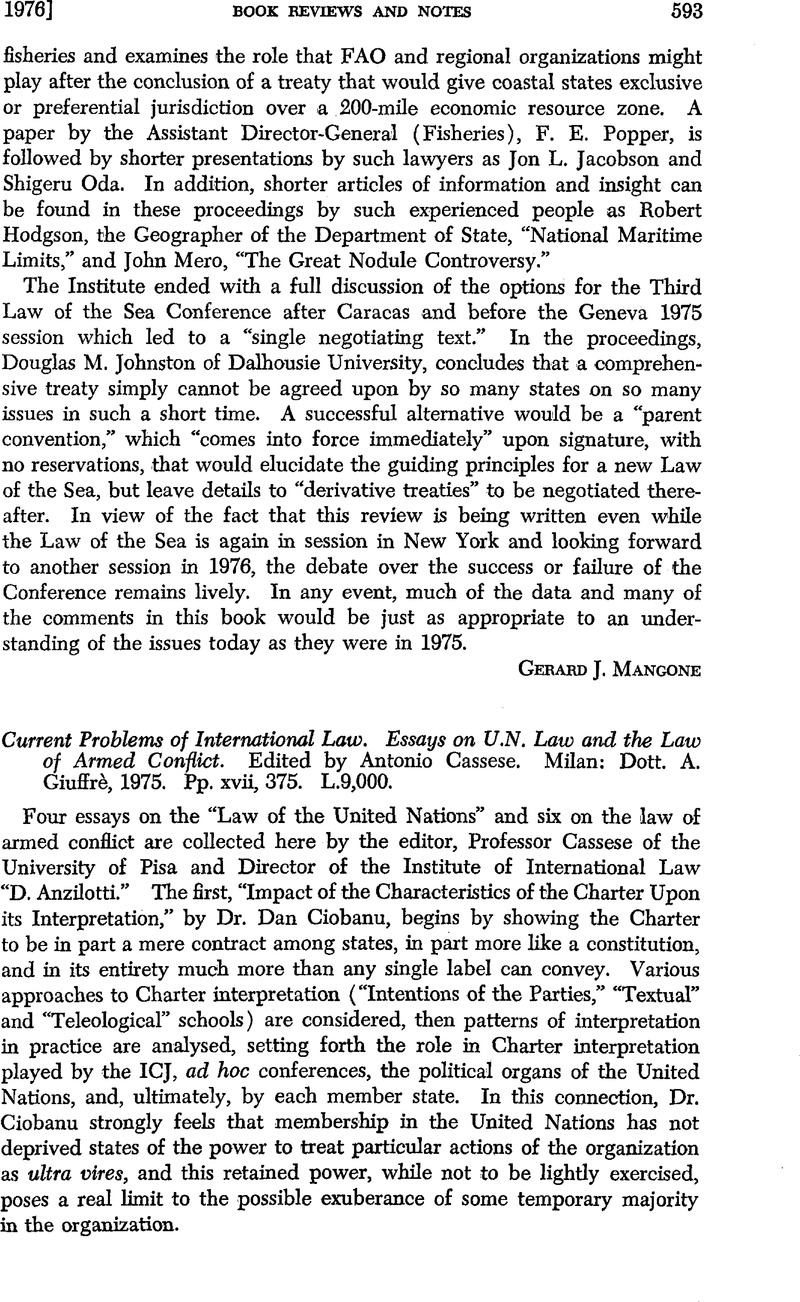No CrossRef data available.
Published online by Cambridge University Press: 27 February 2017

1 The first sentence is true if only conviction by a tribunal and confinement characterize punishment. But there are other forms of "punishment," and the trail of trials and blighted careers begins with Calley but does not in fact end there. As to the second sentence, one wonders what newspapers Professor Roling has been reading and whether he regards the Northeast and Far West as not part of the United States. Calley was in fact released September 25, 1974, ten days before he would have been eligible for parole under his original ten-year sentence of March 21, 1971. When the serious constitutional grounds for his release were reversed by an 8-5 decision of the Federal Court of Appeals for the Fifth Circuit on September 10, 1975, the parole was extended without requiring him to serve out the remaining ten days of close confinement. New York Times, Sept. 11, 1975, at 26, col. 3, September 12, 1975, at 13, col. 1. There is no evidence that the case has been handled in the United States with less than conscientious concern for the law.
2 G. A. Res. 2625 (XXV), 25 GAOR SUPP. 28, at 122, UN Doc. A/8028 (1971).